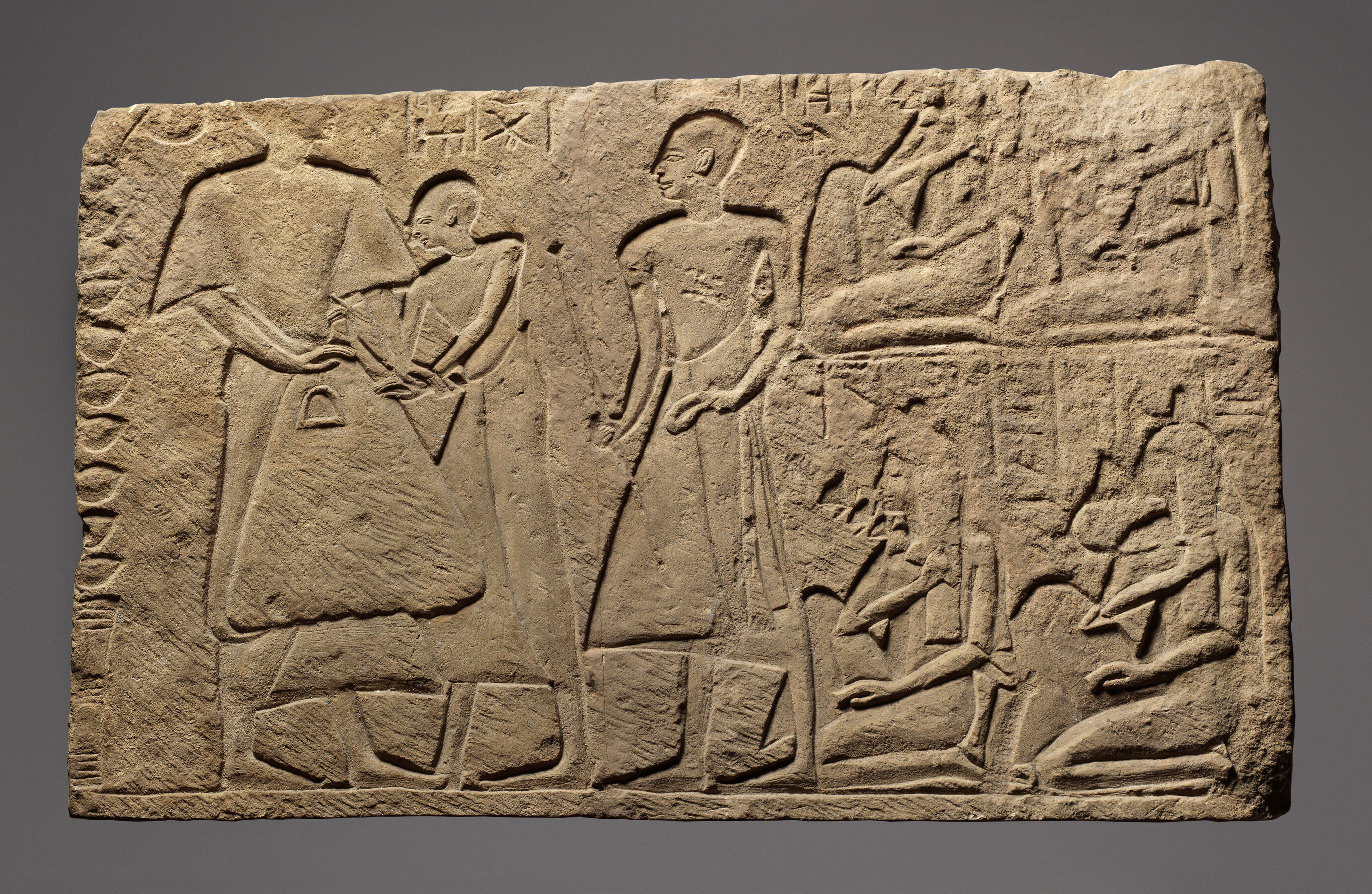In ancient Egypt, seal bearers performed a critical function on behalf of the crown. Only high officials designated by the king could possess the official seal. Signet rings inscribed with the royal seal were used to mark official documents and belongings and guaranteed the integrity of what was sealed.1
The relief depicts a seal bearer and his attendants at a banquet. The first attendant holds out a signet ring that dangles from a cord. Leaning forward, he smooths out the seal bearer’s calf-length double apron.2 The second attendant carries the seal bearer’s staff of office and a long, looped kerchief. All have shaved heads, suggesting their religious affiliation. At the far left stands a tall bouquet. At the far right are two registers of kneeling female banqueters. They wear long wigs with perfumed, unguent cones on their head, long dresses, and wraps. Some hold floral bouquets to their nose, and others sniff lotus flowers. Unfortunately, the texts are abraded, making it impossible to discern names, titles, and filiations.
-
Auenmüller, Johannes. 2022. “Siegel und Siegeln in der Ikonographie des pharaonischen Ägypten: Soziale Kontexte und Akteure.” In Gesiegelt - Versiegelt - Entsiegelt: Studien zum Siegel(n) als Kulturtechnik von der Antike bis zum frühen Mittelalter, edited by Johannes Auenmüller and Nikola Moustakis, 33-100. Münster: Zaphon.; Kaplony, Peter. 1984 “Siegelung.” LÄ V: 933-937.. ↩︎
-
The apron dates this relief to the early Dynasty 19. See Hoffmann, Eva. 2004. Bilder im Wandel: die Kunst der ramessidischen Privatgräber. Theben 17. Mainz: Zabern. ↩︎
Bibliography
- Auenmüller 2022
- Auenmüller, Johannes. 2022. “Siegel und Siegeln in der Ikonographie des pharaonischen Ägypten: Soziale Kontexte und Akteure.” In Gesiegelt - Versiegelt - Entsiegelt: Studien zum Siegel(n) als Kulturtechnik von der Antike bis zum frühen Mittelalter, edited by Johannes Auenmüller and Nikola Moustakis, 33-100. Münster: Zaphon.
- Hoffmann 2004
- Hoffmann, Eva. 2004. Bilder im Wandel: die Kunst der ramessidischen Privatgräber. Theben 17. Mainz: Zabern
- Kaplony 1984
- Kaplony, Peter. 1984 “Siegelung.” LÄ V: 933-937.
